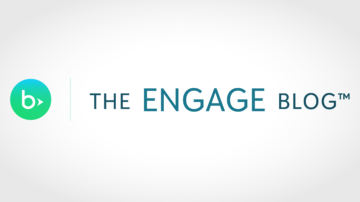13 Tips for Ensuring Government Grant Compliance for Your Nonprofit Organization

In the words of the great 80s hairband Poison, every rose has its thorn. Grant funding looks beautiful in your income statement, but if you’re not careful, the reporting requirements can be prickly.
In our webinar with Rachel Werner and James Spencer from RBW Strategy, they covered steps to help nonprofits that receive—or are looking to start receiving—government grant funding. Incorporate these best practices into your processes before applying for a grant and after you win an award to make sure you stay compliant with the grant requirements.
Pre-Award Preparation
Have certain policies and processes in place before applying for a grant so you can be confident you meet their requirements and there are no surprises.
Tip 1: Have your leadership drive the conversation on grant funding and the policies associated with this revenue stream. Relying on core policies that include both finance and program offices improves collaboration because everyone knows what their roles are and where the directive comes from.
Tip 2: Review the Uniform Grant Guidance (2 CFR 200) requirements to make sure you have the appropriate internal controls in place. Perform a risk assessment (here is a worksheet you can use) to ensure your organization’s financial integrity and that you are prepared for the reporting requirements. Update your policies accordingly.
Tip 3: Focus on consistency throughout your organization when it comes to your grant funding. Identify a place to store documentation, including applications and relevant policies, in a place where everyone has access, such as within the grant record within your fund accounting software or a cloud storage tool. Make sure everyone knows why you are applying for each grant and what the specific goal is if you get it.
Tip 4: Calculate your indirect cost or make an intentional decision to use the de minimis rate. Knowing how you want to handle indirect costs before you apply for government grants will speed up the application and reporting processes.
Receiving the Grant Award
Congratulations on winning the grant! Put those policies you created and updated into practice and establish workflows for this specific funding opportunity.
Tip 5: Review the Notice of Grant Award terms and conditions with all departments, specifically highlighting the requirements and deadlines. Make these documents available to all stakeholders so everyone can reference them as needed.
Tip 6: With the Notice of Grant Award in hand, do a gap analysis to make sure you have the programmatic and financial requirements outlined in the communication. Make a list of the processes that are involved, what systems you have that will work for those requirements, what needs to be updated, and what needs to be created from scratch.
Tip 7: Organize a kick-off meeting that includes sub-recipients and stakeholders throughout the organization. Use this opportunity to assign roles and responsibilities that align with the grant deadlines. Set clear expectations so those involved don’t feel blindsided by due dates or what they need to do.
Tip 8: Establish standing meetings with stakeholders to relay budget information, tracking systems, accounting codes, deadlines, and all other important, cross-cutting information.
Tip 9: Create tools that outline the expense codes and budget for this grant as well as your defined indirect costs so everyone can apply the percentage consistently across departments. Make these tools available with the Notice of Grant Award and other documentation.
On-Going Support and Maintenance
As you put the grant funding to use, you have several tactical steps to make sure you are prepared for the reporting and audit requirements during and after the grant period.
Tip 10: Make sure everyone understands the reporting cadence and process for tracking the budgets vs actual, reviewing invoices, and indirect cost monitoring. Share the reports and outliers during your standing meetings, as well as the due dates for progress reports. Share your policies for invoice reviews with your programmatic team members and sub-recipients.
Tip 11: Set a regular cadence for completing and collecting timesheets. An authorized individual—not the person who completed the timesheet—must approve them each pay period to ensure segregation of duties. Review them regularly against the approved budget.
Tip 12: Establish one person to maintain the documentation throughout the grant award and after. This will provide consistency with capturing, tracking, and storing grant-related documents.
Tip 13: Be prepared for your audit. If you receive more than $100k in a fiscal year from federal grants, you are subject to a single audit. Your auditor will be looking at financial and programmatic information, so you need to make sure you are tracking and managing those details.
Grant Compliance is a Team Effort
Grants, especially government grants, are often complex and require significant work. While the finance team owns much of the reporting and tracking responsibilities, grant compliance requires input from the entire organization. Make sure your program team understands their role. By establishing a repeatable process, you’ll be ready to take on more grant funding and drive more impact.
Learn more about ways to improve government grant compliance with the on-demand webinar, Navigating Federal Funding: Essential Risk Mitigation and Success Strategies for Financial Leaders.
Free Guide
8 Ways Fund Accounting Software Helps You Improve Compliance and Revenue Tracking


